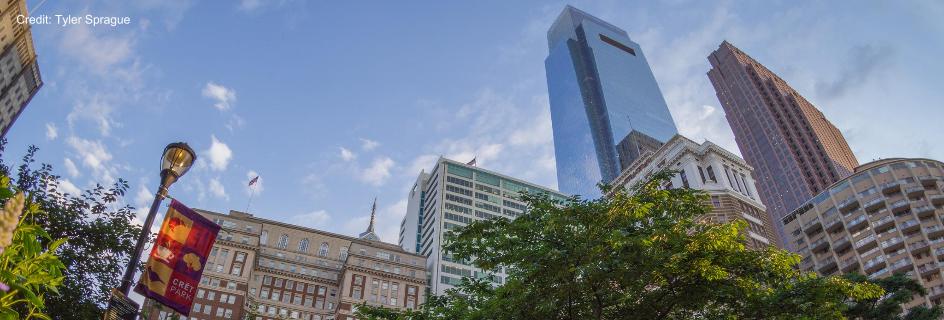- About GPA
- Global Events
- GLOBAL NEWS FROM PHL
- Global Directory
- World Heritage City
- Sustainable Development Goals (SDGs)
- Global Philadelphia Role on Sustainable Development Goals
- Completed Sustainable Development Goals
- SDG#1: No Poverty
- SDG #2: Zero Hunger
- SDG#3: Good Health & Well-Being
- SDG#4: Quality Education
- SDG#5: Gender Equality
- SDG#6: Clean Water & Sanitation
- SDG#7: Affordable and Clean Energy
- SDG #8: Decent Work and Economic Growth
- SDG #9: Industry, Innovation, and Infrastructure
- SDG#10: Reduced Inequalities
- SDG#11: Sustainable Cities and Communities
- SDG#16: Peace, Justice and Strong Institutions
- SDG#17: Partnerships for the Goals
- Press
Home ›
World Heritage Cities’ Response to the COVID-19 Pandemic
Posted on May 15, 2020

The COVID-19 pandemic has brought the world to a standstill, which has impacted the daily operations of historical cities across the world. In particular, many of Philadelphia’s fellow World Heritage Cities have implemented a variety of innovative measures to combat the spread of the pandemic.
Bamberg, Germany: virtual heritage resources
Bamberg temporarily closed all schools on March 15 and transitioned to virtual learning as a way to slow the spread of the virus. To supplement virtual learning, Bamberg has created an online educational platform for students to access learning exercises, materials and lesson plans about the city’s many historical monuments.
Sultanbeyli, Istanbul, Turkey: flattening the pandemic’s curve
Istanbul has implemented three main initiatives to reduce the spread of the pandemic. First, the Sultanbeyli municipality has digitized many helpful services (such as tax payments) under the “Stay at Home” tab on the municipality’s website. Second, Istanbul organized an educational campaign called “Let’s See Each Other in Virtual to Win,” which awarded technological devices to young people who struggled to access them. Third, Istanbul is providing hot meals twice a day and regular residential cleaning services to people over the age of 65.
Quebec, Canada: finding new economic opportunities
In response to the economic burden of the pandemic, Quebec has created committees to identify opportunities to revive the economy, particularly focusing on strategic monitoring and innovation. In addition to this, Quebec has reallocated non-essential staff to work on an array of high priority issues and has also deferred tax payments by two to three months.
Rhodes, Greece: economic and tourism recovery
Highly dependent on tourism, Rhodes has launched virtual media campaigns to emphasize the necessity of staying home while simultaneously showcasing its scenic landscapes and destinations. Further, Rhodes has also implemented the following economic measures: the deferral of municipal tax payments, financial benefits, a ban on firing employees and a deferral of loan installment payments.
Kazan, Russia: Prevention, security and improving digital access to heritage resources
In response to the pandemic, Kazan has instituted multiple campaigns to assist vulnerable members of its population. For example, Kazan’s City Committee for Children and Youth started a volunteer program called “We are together. Help for the elderly” to assist the elderly population with activities like shopping and bill payments.
In addition to this, Kazan is providing a variety of virtual services to ease the transition to life at home. For example, since Kazan had to cancel 50 city tournaments and championships, the city began offering free online training sessions with fitness experts. Further, Kazan has started the “Library Next Door” project to provide residents with free services like virtual reading materials and access to intellectual events.
Bordeaux, France: boosting economic and business services
Bordeaux has implemented a wide range of measures to promote economic recovery, including free parking in outdoor lots as well as exemptions from both the terrace tax and taxes levied on the use of public space and advertising.
Further, Bordeaux has set up various short-term recovery initiatives, such as the regional government providing funding for businesses. Bordeaux has also compiled a list of retailers who are providing food delivery and collection services for the public.
Valparaíso, Chile: prevention and safety measures
Characterized by its incredibly diverse population, Valparaíso has prioritized providing all residents with updated information on the city’s current safety measures. For example, Valparaíso has created a series of explanatory infographics as well as statements published in Creole to help share information among the city’s large population of Haitian immigrants. In addition to this, Valparaíso has established daily cleaning services to disinfect public spaces like bus stops and health centers.
Oaxaca, Mexico: technological tools and municipal services
To avoid overcrowding public spaces, Oaxaca has adopted many virtual services to remotely facilitate daily city operations. For example, Oaxaca has created a website for residents to access updated information on the pandemic as well as at-home activities/services (like a virtual library and a variety of apps). Further, all City Council sessions are being hosted through video conferences that are livestreamed through social media.
Anyone interested in learning more about the pandemic resources provided by Philadelphia’s fellow World Heritage Cities can learn more on the Organization of World Heritage Cities’ Website here.
Article by Tasnim Hasan on behalf of the Global Philadelphia Association







